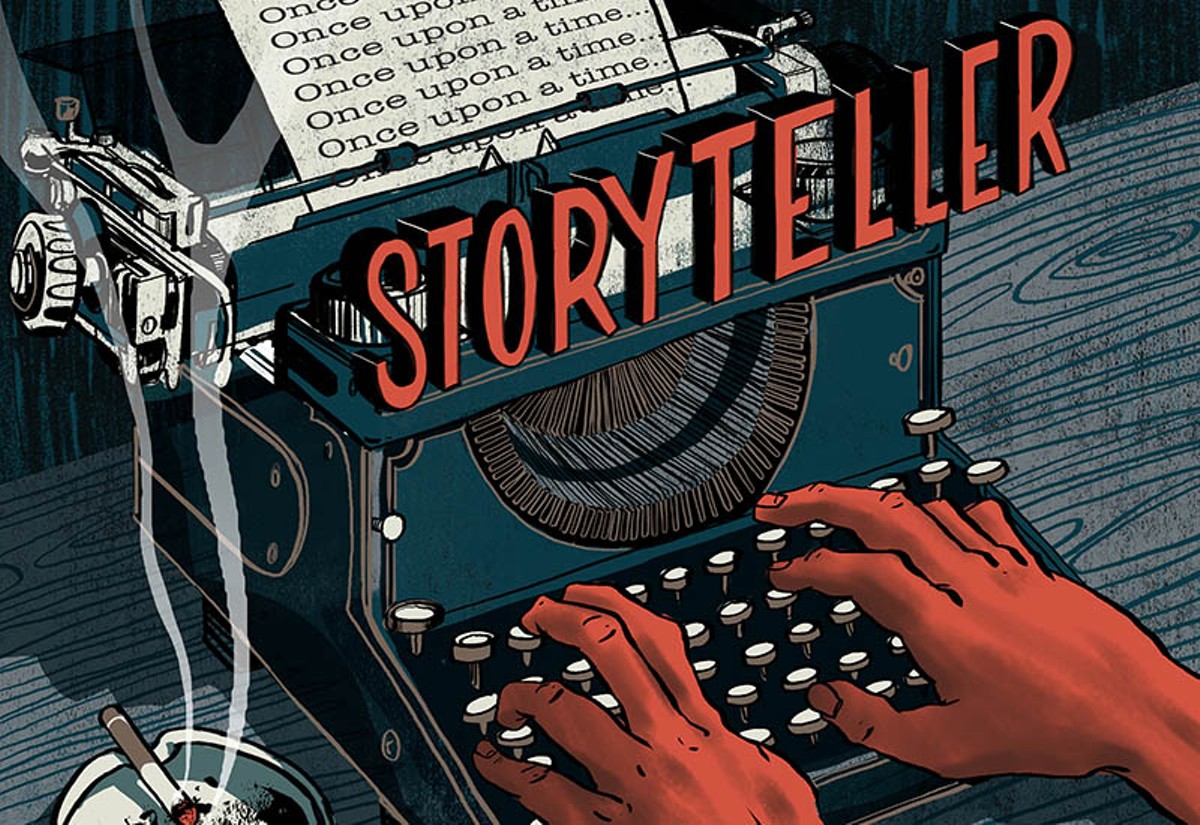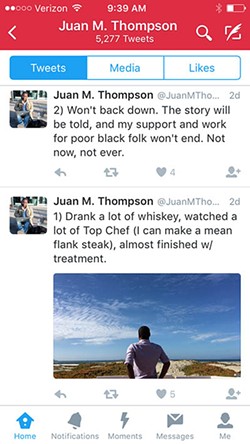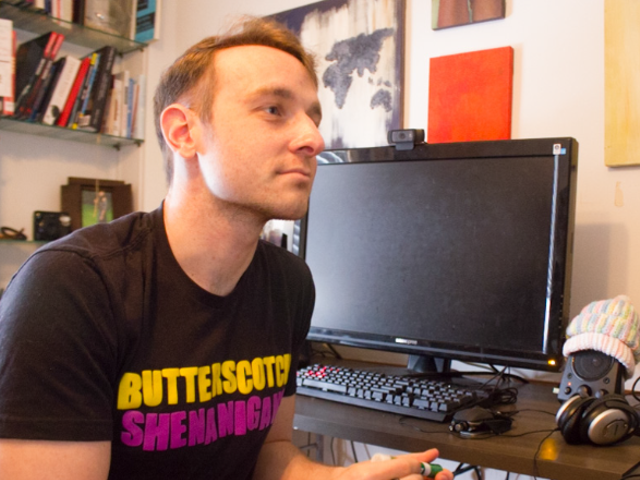But the reporting was at least sloppy, if not intentionally misleading to sharpen the point. Yolanda Thompson admits she had a traffic warrant. She claims today that she was the victim of mistaken identity, but in her telling, it's not clear whether the mixup was at the jail after she was already booked, or in St. Ann.
A look at court records or maybe a few phone calls by Thompson would have cleared up some of the discrepancies in his piece — but also maybe complicated a juicy narrative. It's a far better story, after all, if Thompson's mom was the victim of mistaken identity, not just someone who suffered more than she should have after driving on a suspended license.
City prosecutors, city police and a spokesman for the mayor's office all said they don't have any records of Thompson or anyone from the Intercept ever contacting them to investigate.
Journalist Andrew Jerell Jones worked with Thompson for about six months at the Intercept. He says they were "friendly" and, like Thompson, he claims the site has a race problem, though he won't get into specifics.
That doesn't excuse bad journalism, he says.
"There are some fundamental problems at the Intercept with race, as there are in media in general, including liberal online media," Jones writes in an email. "But what Juan did was something that is TABOO for all of us journalists of ALL color and something that does not make him look like the martyr he is sadly trying to portray himself as.
"What he did was made it worse for all of us minority journalists, especially black, who have legitimate issues with race in newsrooms and media as a whole."
Thompson's conversation with the RFT lasts more than an hour on the phone, and both before and after it, he answers a few questions by email. But even then, the young writer is maddeningly elusive. As just one example, asked for proof of his cancer diagnosis and treatments, Thompson says he'll have to ask his attorney.
He had previously made no secret of the disease, tweeting on January 12 that he had been diagnosed that day and later opening his letter to Reed with a progress report.
"I've been undergoing radiation treatment for testicular cancer and, since I no longer have health insurance, I've been feverishly struggling and figuring out how to pay for my treatment. All of this, of course, has taken up my time and energy; except for the few moments I've spent searching for some relief," he'd written.
On February 6, less than a month after he announced his diagnosis and four days after Reed's "Note to Readers," Thompson again took to Twitter: "Drank a lot of whiskey, watched a lot of Top Chef (I can make a mean flank steak), almost finished w/ treatment."
The message was the first in a string of three tweets that day as Thompson promised his "story will be told, and my support and work for black folk won't end." He signed off with "I'm from #StLouis. We tough as fuck."
The tweets disappear from his feed four days later, along with any previous mentions of having cancer. In the days that follow, he answers emails only with short statements, if at all.
That's even as other parts of his story unravel. A Vassar spokesman confirms that Thompson went there but never graduated. A St. Louis Metropolitan Police spokeswoman says the name of an officer Thompson quoted in one of his earliest articles, a 2010 piece in the Vassar student paper, doesn't match anyone on the roster of people who've worked there.
Questioned about these inconsistencies, Thompson responds one last time, answering only some of the queries being posed. No, he didn't graduate from Vassar; he blames a "financial dispute regarding my final bill."
And no, there never was a cop by the name he quoted in college. "I used a pseudonym for a friend who worked on the force. There is absolutely nothing wrong with that in a campus newspaper."
He doesn't respond to questions about the University of Chicago Law School or the "forthcoming" memoir. He sends no medical records.
"I've been instructed by my legal counsel not to talk to the media anymore," he writes.
What's the name of the lawyer? Thompson doesn't respond, leaving one more question unanswered.
We welcome tips and feedback. Email the author at [email protected] or follow on Twitter at @DoyleMurphy.






